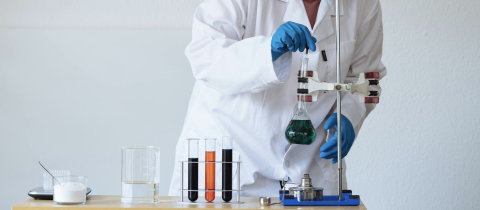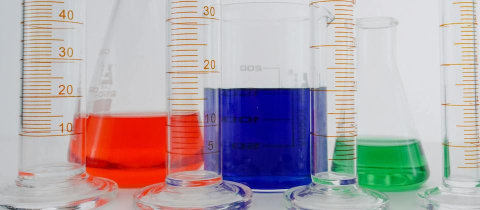I once attended a presentation on the wonders of raw food and sous-vide cooking at a spa resort. What was fascinating was seeing the gradual reaction of my fellow attendees as the presenter piled on fear over risk over danger. Gluten irritates our colon; milk is acidifying; cooked meat is brimming with carcinogens. Oh, and aluminum foil kills our brain. While the audience started out quickly writing down what they felt were words of wisdom, asking for clarifications and rules of thumb, they became worn down by the end of the presentation, with the occasional chuckle and sigh being heard after yet another warning of imminent culinary danger.
Not everyone falls for this kind of chemophobic, paranoid pile-on; in fact, I would wager that most people can identify a quack when they paint it on too thick (like when a woman claims she can regrow limbs using cabbage juice).
But some people are receptive to conspiracy thinking. Case in point: the book Living in the Chemical Age has 22 reviews on Amazon, all of which are five-star ratings.
Here is the thesis of this book, whose cover features a wee plant trapped in an Erlenmeyer flask: “It now seems we are in the full-blown midst—“
I’m sorry, I have to pause from laughing too hard. “Full-blown midst”. Anyway,
“… the full-blown midst of what I refer to as the Chemical Age, an era in which our environments and bodies are the constant recipients of a deluge of chemicals, which are the unfortunate by-products of our drive for advancement.”
As if to crank up the paranoia to 11, she adds, “This bombardment of toxic chemical exposure is silent and, in most cases, hidden, but it has the potential to be deadly.”
You could be forgiven for thinking the author of this, Janet Newman, is a chemist or an environmental scientist. The cover, after all, features the initials “Ph.D.” next to her name. But no. Newman has a Master’s in Social Work and a Ph.D. in Psychology, which goes to show that anyone can write a book about anything these days, so long as they find a willing publisher.
If you’re looking for a “deluge” or “bombardment” of inappropriate anxiety, this book is for you. Apparently, pesticides and herbicides can give you diabetes; aspartame is a neurotoxin; artificial food dyes cause hyperactivity in children. Her solutions are to eat organic food, to stick to “natural sweeteners” like maple syrup, and to withhold your hard-earned dollars from companies selling you food teeming with chemicals.
Her broken clock is right once in a while. Food companies are indeed shoving significant quantities of sugar in packaged food and using deceptive terms, like “evaporated cane juice”, to fool the average consumer. She also encourages her readers to be proactive when dealing with prescriptions: “Document your state of health before you start to take a drug, so you can discuss symptoms and side effects if you experience them.” I have kept a detailed medical journal for 14 years and I have witnessed its usefulness more than once when consulting doctors. Accurate information is key to decision making, which is why this book, though it contains a few morsels of good advice, belongs on the trash heap.
The subtitle to Living in the Chemical Age is How an Ounce of Prevention Can Protect Your Family from a World of Toxins. But it’s not an “ounce” of prevention; it’s a ton of unnecessary apprehension.
Remember: the dose makes the poison. In scaring her readers about sucralose, mercury, and avobenzone, irrespective of our exposure, she has earned herself a second Ph.D., this one in chemophobia.
Want to engage with this content? Comment on this article on our Facebook page!







